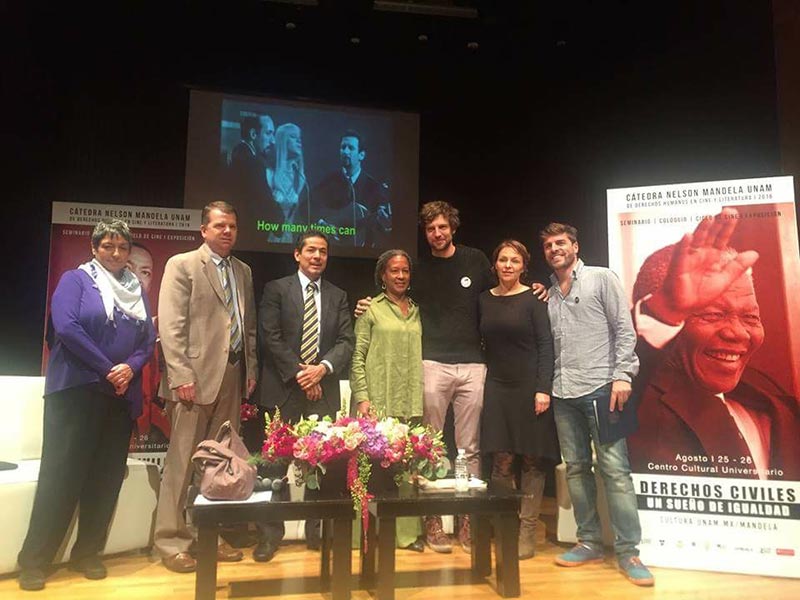SPLC screens voting rights documentary in Mexico, discusses social justice
The Southern Poverty Law Center’s voting rights documentary, Selma: The Bridge to the Ballot, was recently screened multiple times in Mexico City as part of the U.S. Embassy’s program on the civil rights movement.
The 2015 documentary, produced by the SPLC’s Teaching Tolerance program, chronicles the story of the heroic teachers and students who sparked the voting rights movement in Selma, Alabama, leading up to the historic Selma-to-Montgomery march of 1965.
The screenings took place over two days last month.
“This was a wonderful opportunity to work with the U.S. Embassy and meet with people interested in learning more about the U.S. civil rights movement and contemporary social justice issues,” said SPLC Outreach Director Lecia Brooks, who represented the SPLC on the trip. “It was a powerful example of how the ideals of the civil rights movement reach beyond the borders of the United States.”
A screening at the National Autonomous University of Mexico, the country’s largest public university, attracted an overflow crowd of more than 300 students, faculty and others. The documentary was also shown at the Museo de Memoria y Tolerancia, a museum dedicated to tolerance and preserving the memory of genocide victims, including those who died in the Holocaust. The museum also has a temporary exhibit dedicated to Dr. Martin Luther King Jr. and his legacy.
“What was apparent to me during this visit to Mexico is that the ideals of the civil rights movement are universal ideals,” Brooks said. “The issues may differ from country to country, but the desire for justice and equality is the same.”
The SPLC has distributed more than 43,000 free copies of Selma: The Bridge to the Ballot, which is narrated by Academy Award-winning actress Octavia Spencer, to educators and community groups across the country. Teachers or community groups engaged in voter education and turnout efforts can obtain a free copy of the film and its companion teaching guide here.
The screenings at the university and the museum included question-and-answer sessions with Brooks, who fielded a wide range of questions. Some people asked about the Black Lives Matter movement and issues affecting African-American people in the United States. Some wanted to talk about social justice issues that Mexicans are facing in their country and how they could bring about change. Others asked about the work of the SPLC.
At the U.S. Embassy, Brooks met with a committee responsible for a Black History Month outreach effort with the Mexican public. She later visited Mexico’s National Council to Prevent Discrimination and spoke with staff members in charge of educational programs to prevent discrimination. She also discussed the SPLC’s efforts to reform the juvenile justice system in the United States.
The SPLC has hosted screenings of the documentary in cities across the country, including Atlanta, Los Angeles, Minneapolis, Miami, New Orleans, Selma, Montgomery, Alabama; Jackson, Mississippi; and Winston-Salem, North Carolina.

